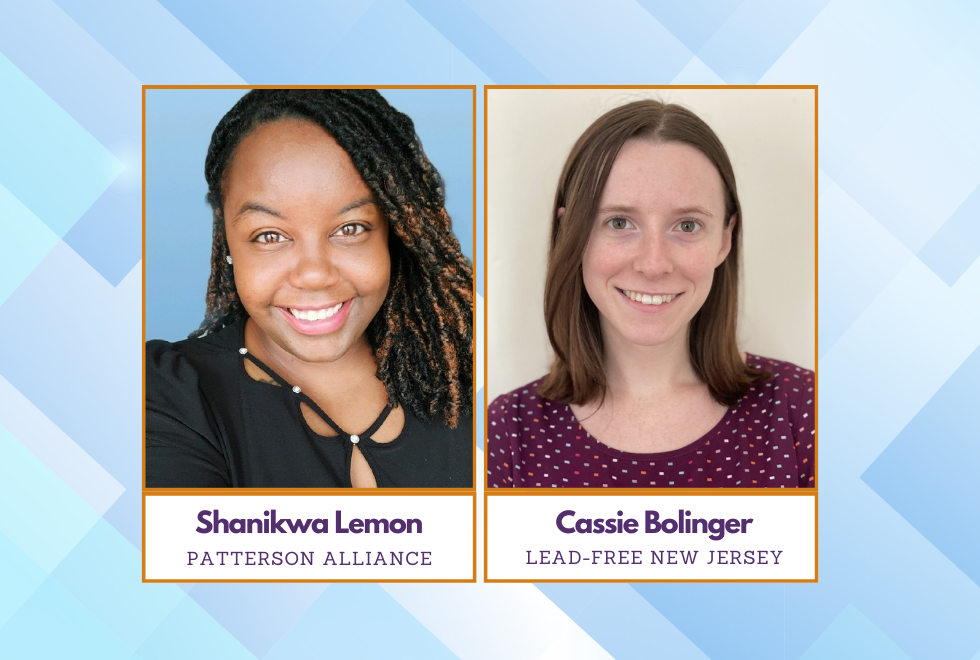
In the heart of Paterson, New Jersey, a group of passionate individuals is steering the course toward a future where Environmental Justice is not just a phrase but a living reality.
Environmental justice is the fair treatment and meaningful involvement of all people, regardless of race, class, or income, in the development, implementation, and enforcement of environmental laws, regulations, and policies.
I had the opportunity to interview two community organizers, Shanikwa Lemon and Cassie Bolinger in participation with Clean Water Actions’s National Environmental Justice Director Kim Gaddy, who develops and implements Clean Water Action and Clean Water Fund's grassroots Environmental Justice campaigns and coalition building efforts nationally and in New Jersey.
Lemon and Bolinger both shed light on their journeys, challenges, and dreams, offering a glimpse into the intricate world of environmental organizing.
The Power of Community Engagement
At the core of their mission lies community engagement. The Paterson Alliance is a local nonprofit coalition committed to improving the quality of life in Paterson, New Jersey, and supporting the city's residents through collaborative efforts. Comprising various community-based organizations, businesses, and government agencies, the alliance works tirelessly to address critical social, economic, and educational challenges faced by Paterson's diverse population.
Shanikwa Lemon, Program Manager for the Patterson Alliance, emphasized the importance of creating spaces for dialogue:
The more we bring up these issues and create spaces where people can learn and understand available resources, the more we empower our community.
Shanikwa’s focus on advocacy and awareness serves as a catalyst for change, encouraging open discussions about environmental justice issues ranging from flooding to air quality problems.
Lessons Learned and Moving Forward
Both Shanikwa and Cassie stressed the significance of listening to community members' voices. Cassie, a program coordinator for Lead-Free New Jersey, highlighted the value of compensating community input. Lead-Free NJ is a community organization dedicated to addressing lead contamination in New Jersey. Focused on removing lead from various sources, they advocate for state-wide lead remediation in homes, schools, and water systems. Their inclusive approach aims to eliminate racial and economic disparities, ensuring a lead-safe environment for all of New Jersey's children. Cassie shares:
Recognizing the value of people's experiences and compensating them for their time is crucial.
This approach not only validates the community's expertise but also ensures a diverse range of perspectives in decision-making processes.
Connecting Policy and People
The organizers firmly believe in connecting policy and public solutions with the people who are impacted by environmental issues. Cassie's background in policy and Shanikwa's passion for education converge in their work, bridging the gap between legislation and its real-world implications. Shanikwa emphasized the need to translate complex policy jargon into accessible information for the community, ensuring that everyone can participate in the conversation surrounding Environmental Justice.
A Collaborative Future
In envisioning the future of Environmental Justice in Paterson and beyond, the organizers expressed their aspirations for a people-first approach. Cassie articulated her dream, saying:
People-first policy and system change so that individuals don't have to worry about the safety of their homes and environments.
This vision underscores the essence of Environmental Justice – a future where every community member can live, work, and thrive in a safe, healthy environment.
As these community organizers continue their work, their dedication serves as a beacon of hope for Environmental Justice not only in Paterson but also for communities nationwide. By nurturing dialogues, learning from past experiences, and advocating for policy changes, they are paving the way for a more equitable and sustainable future. Their passion and commitment remind us that change begins at the grassroots level, one conversation at a time.


